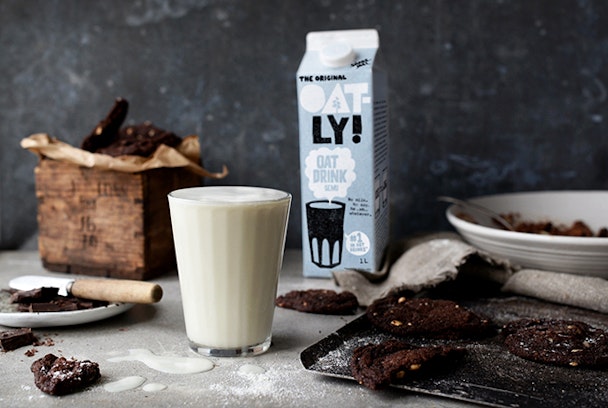Dairy-free Oatly labels to include climate footprint figure to encourage milk swap
Oatly, a dairy alternative drink, has found a new way to position itself against milk competitors: to include the climate footprint of its product on all packaging.

Oatly has unveiled a global roll-out of climate footprints on all product packaging
The initiative is to give people more information about the environmental impact of a product and how basic food and drink choices can have detrimental effects on the environment.
The drink's carbon footprint will be presented similarly to how fat, sugar and nutritional content is labelled via a traffic lights system across food and drink packaging.
From oat field to store, each of Oatly's products will contain a number that defines its climate impact - expressed in carbon dioxide equivalents (CO2e).
The CO2e converts the varying effects of different gases into the equivalent amount of CO2 it would take to create the same greenhouse effect.
The calculations show that by swapping one litre of British whole cow's milk for the equivalent measure of Oatly, you can save 1.16k of CO2 - the greenhouse gas equivalent of driving 10km in an average petrol-powered car.
This isn't the first bold move Oatly has undertaken to position itself against dairy alternatives. Back in October, it ploughed £700,000 into bringing a controversial ad to the UK, after the campaign ruffled feathers over in Sweden.
Running with the tagline 'It's like milk, but made for humans,' it was taken to court by Sweden's dairy lobby who argued the brand's marketing disparaged cow's milk as unhealthy.
Discussing the new labelling, Oatly's sustainability director, Carina Tollmar, said: "Scientists and most reasonable people on Earth agree: to avoid catastrophe we must keep the global temperature rise below 1.5c.
"But even though the food system accounts for 20-25% of the world's total cimate footprint, it's currently really hard for consumers to understand the climate impact of the food and drink they choose to purchase. It's now time to take urgent action."

